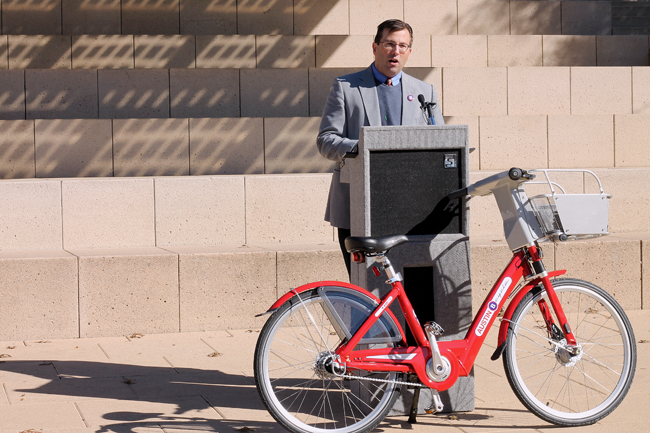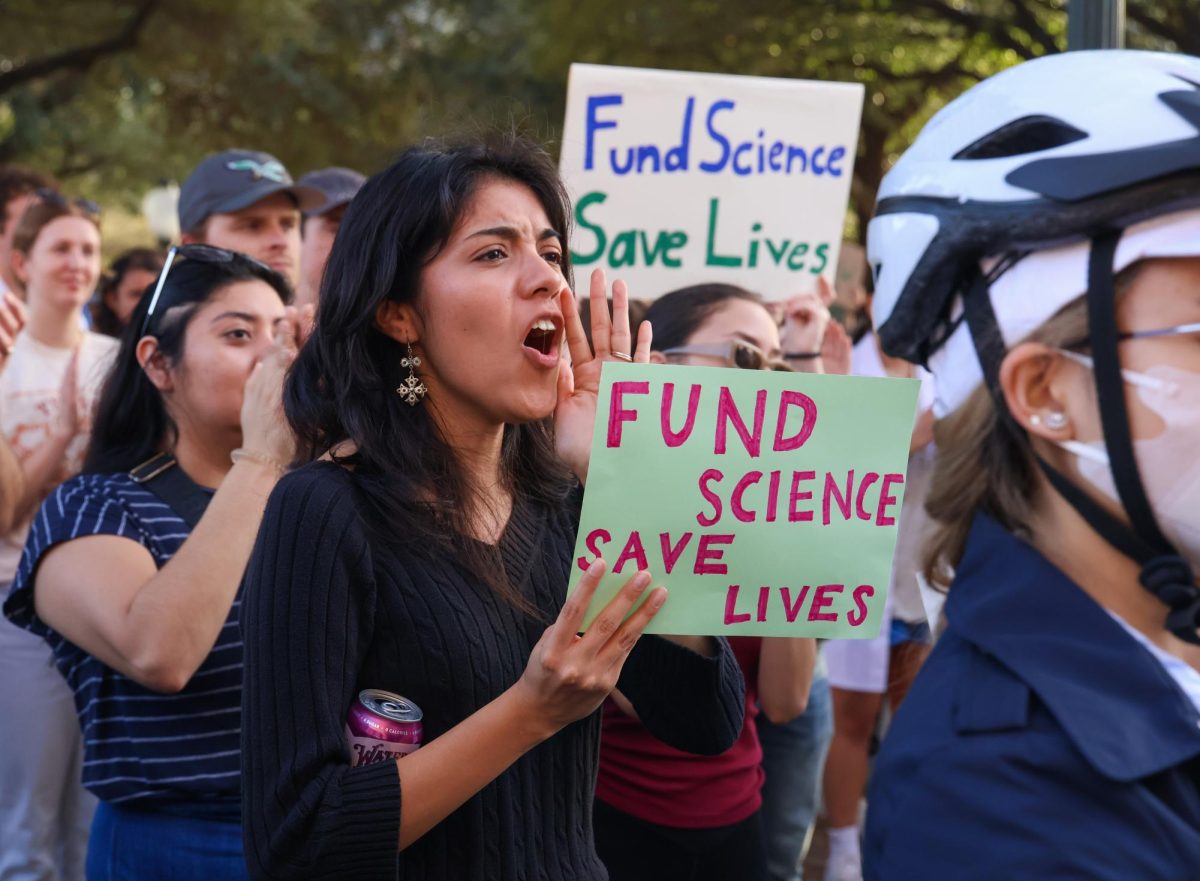Austin will add three new bike kiosks near campus to its bike sharing program, but the additions may conflict with an existing student-run bike-rental program.
B-cycle manages the Bike Share of Austin, an Austin government-sponsored program that began in December. The program allows users to pay a day rate or buy an annual membership to rent a bike, which can be returned to any of 11 bike kiosks throughout the city.
By Sunday, B-cycle will construct 15 additional kiosks, two of which will be located on Guadalupe near 21st Street and the West Mall. One other will be built near the Blanton Museum of Art.
B-cycle’s executive director Elliot McFadden said the bike share program allows people to more easily travel throughout Austin and avoid traffic congestion.
“It’s a great way to get around and make short trips if you’re worried about a bike getting stolen or having to take care of a bike,” McFadden said.
Sam Cortez, bicycle coordinator for Parking and Transportation Services, said transportation services and the city have not yet agreed to merge the city’s program and the Orange Bike Project, the University’s bike-sharing program. Cortez said the city’s program may not integrate well with the University’s program, and transportation services is considering other bike-sharing platforms.
“Most of these bike share programs are more successful in downtown business districts,” Cortez said. “We’re not necessarily sure that’s the right model for the University campus.”
Cortez said students on campus typically want to use a bike long-term, so the cost of the city program’s membership may not be feasible for students.
“Depending on how long you kept your bike out, you could theoretically buy a bike for that price,” Cortez said. “We’d have to have kiosks everywhere — if they live in Jester and want to go to RLM, their rental would be active the whole time they were [in class].”
Victor Harris, director of the Orange Bike Project, said demand for the University’s bikes is high and students must be added to a lengthy wait list to obtain them.
“Most people usually wait about a semester or longer to get a bike,” Harris said.
According to Harris, at least 60 percent of the Orange Bike Project’s funding comes from the Office of Sustainability’s $5 fee, which is added onto students’ tuition payments. Harris said the organization obtains additional funding through an annual bike auction and bike sales.
B-cycle’s executive director McFadden said the demand for B-cycle’s bike rentals exceeded its estimate but did not exceed the program’s capacity. According to McFadden, 95 percent of members and 40 percent of daily users are local.
“We’re just thrilled that we’re getting higher-than-expected usage,” McFadden said.
According to McFadden, Bike Share of Austin received a $1.5 million federal grant and $500,000 from local companies and organizations. He said the overall projected annual budget is about $700,000 to run 40 stations.
Harris said he thinks that as the city’s bike share program expands its presence around campus, students will transition from its short-term rentals to longer-term rentals with the University’s Orange Bike Project.
“I think it’ll open people’s eyes,” Harris said. “It’ll be more permanent instead of a one-day thing. … That’s where we would step in.”
Watch a Daily Texan videographer evaluate the bike share program in this video column.





















